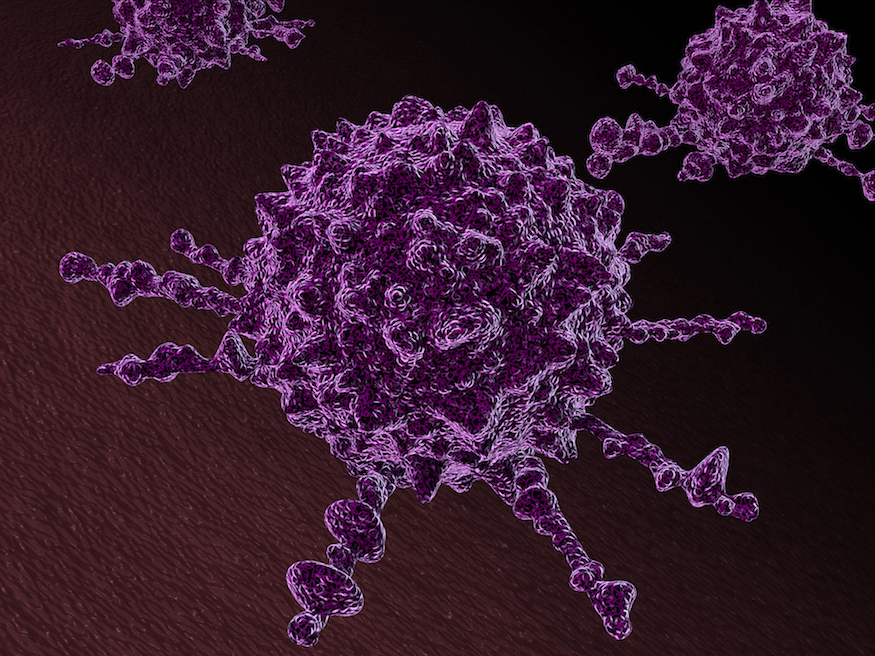Thanks to a new mouse study, U-M researchers have discovered why stem cells become resistant to cancer treatment and are now developing therapies to combat this resistance.

Researchers at the University of Michigan Rogel Cancer Center are unraveling a crucial thread that explains why cancer so often becomes resistant to treatment.
In a 2003 breakthrough finding, Max S. Wicha, M.D., and colleagues discovered that a small number of cells within a tumor — the cancer stem cells — were responsible for fueling the growth and spread of cancer. Kill the stem cells, and you could master the cancer.
But cancer is like a game of whack-a-mole. Strike it down in one place, and it pops back up in another.
Now, researchers have found that cancer stem cells exist in more than one state and are very plastic, meaning they can change form, sliding back and forth between a dormant state and a rapidly growing state. This plasticity is responsible for cancer’s two key characteristics: multiplying and spreading.
“When we use targeted therapies, they often only work for a certain period of time, and then the cancer becomes resistant. A lot of that resistance is from the cancer stem cells. They change form to evade the targeted therapy,” says Wicha, Madeline and Sidney Forbes professor of oncology and director of the Forbes Institute for Cancer Discovery at the Rogel Cancer Center.
“This tells us we’re going to need multiple stem cell therapies to attack multiple forms of stem cells,” he says. It turns out the cell metabolism controls this change, suggesting a possible way in to attack the stem cells.
Cells get energy through mitochondria, which depends on oxygen, and through sugar, or glucose. Cancer stem cells pull energy both ways. In the dormant state, the cells use glucose; in the proliferative state, they depend on oxygen.
So researchers attacked the metabolism in both ways. They used a drug currently used to treat arthritis that’s known to block mitochondria, and they manipulated glucose to block that path. They tested this in mice with breast cancer and found they could knock out the stem cells. Results are published in Cell Metabolism.
“Rather than just try to use toxic chemicals to kill a cell, we use the metabolism of the cell itself to kill the cancer,” Wicha says.
Researchers are also understanding that the immune system is regulated by metabolism, suggesting the possibility of combining anti-stem cell therapies with immunotherapies.
Researchers hope to bring this concept to the clinic in the next few years.
Disclosure: Wicha holds equity in OncoMed Pharmaceuticals.
This story was originally published by the Michigan Health Lab Blog on July 3, 2018.